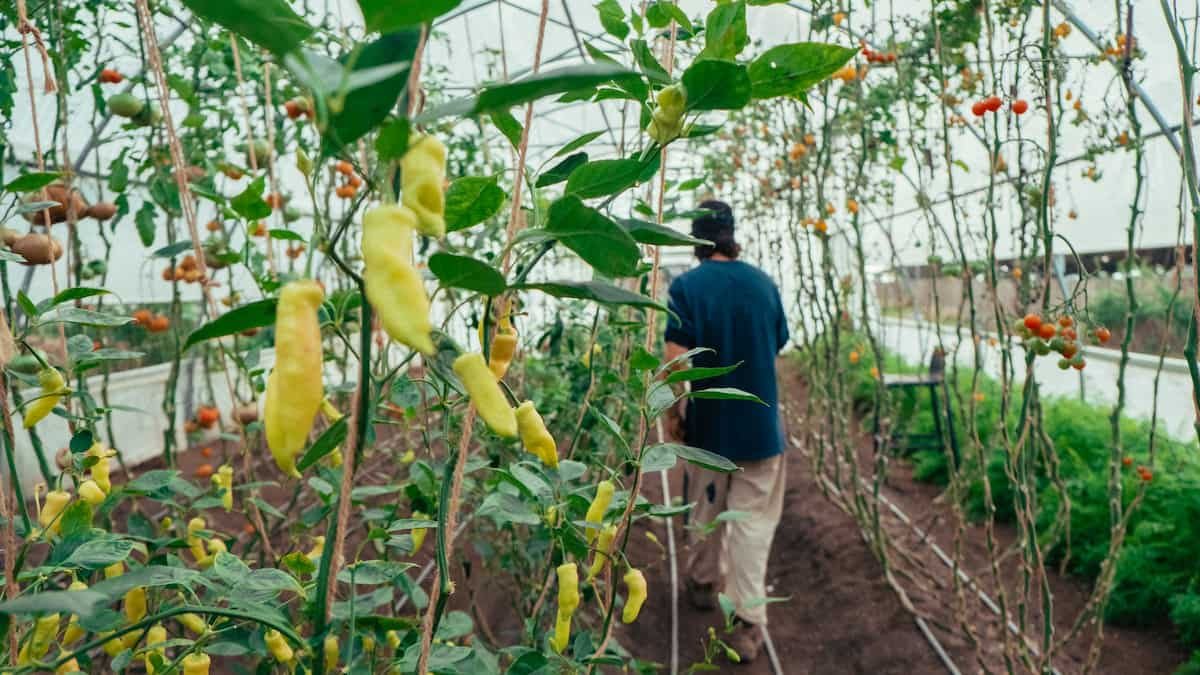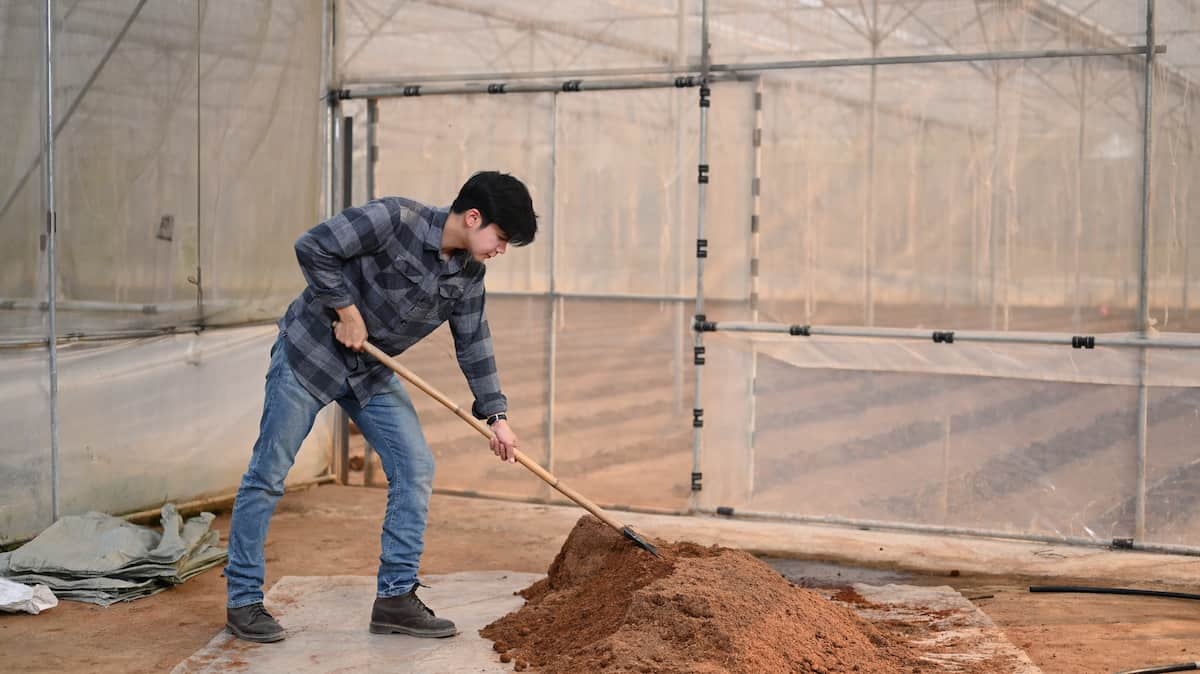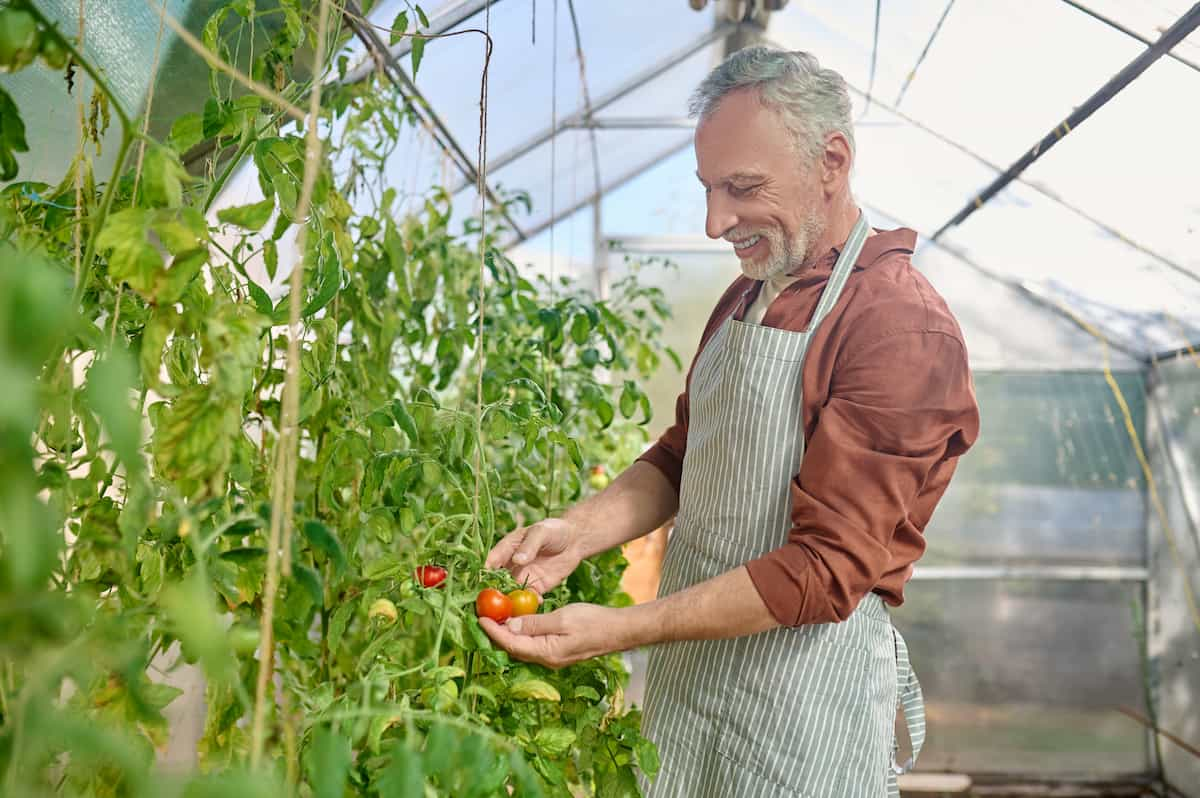A great business opportunity is opening in Organic Farming due to the high demand for organic products. Farming organically refers to the cultivation of crops without the use of any synthetic chemicals, insecticides, or any other harmful substances. In farming, natural manure from animals, such as animal husbandry, goat farming, etc., makes the soil more fertile.

There is no harmful impact on the environment or human health as a result of the process. In organic farming, crop rotations, residues, animal wastes, bio-fertilizers, legumes, green manure, and mechanical cultivation are used. In addition, biological control is used to maintain soil productivity and control insects, weeds, and other pests.
How to Start Organic Greenhouse Farming from Scratch
Learn the Basics of Organic Farming and Greenhouse
Learning the basics of natural and organic farming is the first step in starting an organic farm. This gives a good indication of what one may expect and where to start. It is beneficial to invest in pre-hand research. Talking with people who are already in the business is also important. Participate in farmer-meet-up symposiums and organic farm training programs. Making the exploratory process smoother is greatly aided by the experience of another farmer who has been through a similar phase.
Choose the Site Which Suits You to Construct a Greenhouse and Start Organic Farming
Site selection is crucial to the success of any venture. It is usually the location of an organic farm that determines the venture’s success. The organic farm must be located near a clean water source: water is a non-negotiable resource for the growth and health of crops. If the water source is far away, managing the irrigation process is much more difficult.
Newcomers may consider this tedious, but it is crucial to the venture’s success. Additionally, the farm’s proximity to the marketplace is important in its sustainability. Farm products can be easily transported to markets due to the farm’s proximity. In addition, the farm can save money on transportation costs.
Design and Construct your Greenhouse
Solar greenhouses have gained popularity in recent years. Some greenhouses collect solar energy during the day and store it at night, allowing farmers to extend the growing season. Small greenhouse owners can benefit from passive solar greenhouses. During summer, when it is excessively hot, install windows to allow for ventilation. Install an irrigation system, fertilizer system, benches, and wire shelving in your greenhouse to allow airflow and fans to exhaust hot air.
Get an Organic Certification
Organic farming for self-consumption does not require certification, but starting an organic farming business does. By obtaining organic certification, you ensure your product’s quality and that it is safe and fit for domestic and international consumption. Organic farming businesses are required to follow a set standard, ethics, and guidelines. After your farm is certified, you can even export its products overseas. Simply put, if you want your product’s packaging to read “100% organic,” you must be certified.
In case you missed it: Organic Versus Regenerative Agriculture: Explained in 10 Simple Steps

Do a Market Study and Choose the Crops
Look at what sells well in your area and ensure the market isn’t saturated. Marketing and selling your product are different things but equally important. Growing and raising your product is one thing, but marketing and selling it is another. Several options are available. Here are just a few examples:
- Cereals: Wheat, oats, barley, soybeans, corn, rice, rye, millet, sorghum
- Vegetables: Broccoli, cauliflower, cabbage, carrots, swedes, turnips, sweet potatoes, potatoes, zucchini, tomatoes, bell peppers, chili peppers, onions, lettuce, cucumbers
- Fruits: Apples, pears, oranges, grapefruits, grapes, strawberries, lemons
- Nuts: Almonds, walnuts, hazelnuts, pistachios, peanuts, chestnuts, macadamia nuts, pecans
- Herbs: Thyme, oregano, rosemary, marjoram, lavender, cilantro, mint, basil, chives, parsley, chamomile
- Specialty crops: Saffron, ginseng, ginger, goji berries, bamboo, truffles, turmeric
Prepare the Soil for Organic Farming
Good soil is the foundation of all organic farm produce. There is a direct correlation between the soil’s condition and the plants it supports. Using inorganic soil treatments may harm the environment, the plants that grow in the soil, and the consumers who consume the food. Good soil contains nutrients that plants need to grow.
Among other components, good soil consists of compost, leaf and grass clippings, and manure. Composting onsite generally benefits farmers. You can make it easy and save a lot of money. As a result of composting, water is conserved, weeds are reduced, and waste is kept out.
Plant the Crop and Take Care of What You Plant
Every growing plant requires a different method of cultivation and management. In addition to fertilization schedules and pest & disease management procedures, a plant nursery company provides detailed guidelines. Being a successful greenhouse farmer requires “everyday close crop monitoring” because it helps understand any pest or disease attacks on the crop early. It also helps to determine whether the plant is deficient in certain nutrients. For every greenhouse farmer, there are some essential tools and chemicals to have.
- EC-PH Meter: A soil and water analysis can be performed with this meter. Choosing the right fertilizer dose combination is crucial.
- Hygrometer & Thermometer: This device shows humidity and temperature inside the greenhouse.
- Weighing Scale: This device helps measure the required quantity of fertilizer per dose.
- Soil sterilization: The main purpose of hydrogen peroxide with silver is to sterilize the soil.
The growth and health of plants need to have access to water. Watering the plants regularly is essential for their growth. It depends on the type of plant and the location where it is being grown, and how often plants need to be watered. To start organic farming, you should know how to make organic fertilizers and pesticides. By using organic inputs, the commodity will not contain any residues; therefore, it is safe to consume.
Start Looking for Markets
Organic farm products can be marketed in a variety of ways. Local farmers’ markets are one option for selling your products. You can use this to build relationships with the people who support your business and get in front of potential customers. You can also distribute your products to local businesses, such as grocery stores and restaurants.
In case you missed it: A Step-By-Step Guide for Growing Organic Microgreens

Your visibility will increase, and you can reach new customers. Selling your organic products online is an excellent idea if you’re interested in reaching a wider audience. Several methods can be used to accomplish this. For your business, you can create a website or online store.
Conclusion
Organic farming is gaining popularity among consumers, farmers, administrators, researchers, and policymakers. Compared to conventional farming, organic farming produces healthier and safer food products. As well as restoring soil health, protecting the environment, and increasing diversity, organic farming maintains crop productivity and generates more income for farmers. Therefore, it is a profitable agriculture business idea.
- Ultimate Guide to Ossabaw Island Hog: Breeding, Raising, Diet, and Care
- Ultimate Guide to Juliana Pig: Raising Facts, Size, Diet, Care, and Lifespan
- Raising Lleyn Sheep: Disadvantages, Price, Uses, Characteristics, and Care
- Ultimate Guide to Meishan Pig: Breed Facts, Breeding, Raising, and Care
- Ultimate Guide to Teacup Pigs: Raising, Diet, Lifespan, Cost, and Care
- Guide to Raising Poll Dorset Sheep: Facts, Profile, Characteristics, Uses, and Care
- Ultimate Guide to Bighorn Sheep: Characteristics, Diet, Lifespan, Breeding, and Lifecycle
- Ultimate Guide to Raising Katahdin Sheep: Farming Facts, Breed Profile, Uses, and Care
- Ultimate Guide to Raising Oreo Cows: Belted Galloways Farming Facts, Profile, Uses, and Care